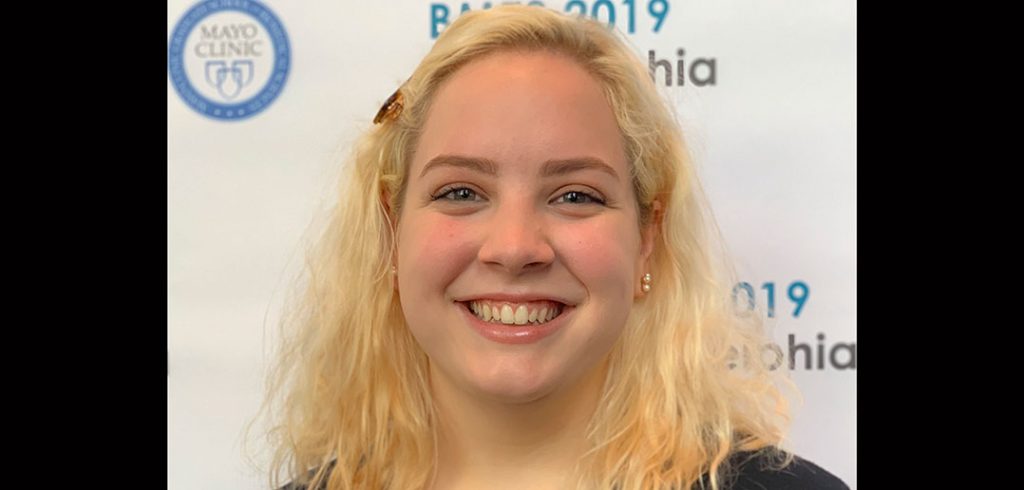Millions of Americans are now living with HIV with the aid of a multitude of antiretroviral drugs. Fordham student Elizabeth Breen is one of many researchers working to make sure they get the neurological attention they need.
This fall, the Fordham College at Lincoln Center senior learned that the paper “Medical Outcomes Study HIV Health Survey (MOS-HIV) Subscales and Neurocognition Among Latinx People with HIV” has been accepted for presentation at the International Neuropsychological Society’s annual meeting, which takes place in February virtually.
The paper details the results of an analysis that Breen and nine others conducted of surveys on medical outcomes that 105 people with HIV took in 2014.
The group was 74% Latinx and had an average age of 46. The goal was to get a better understanding of what aspects of their mental health had the greatest effect on their neurological health. As part of the survey, they were asked to perform tasks such as listening to a list of words and then repeating them back to an interviewer or thinking of as many words as they could that started with the letter T in 60 seconds.
“Everyone that we work with does well in some areas and struggles in others. That’s just how our brains work. But overall, once we collect that data, we get a pretty good estimate of how good people’s psychological capabilities are at the time of testing,” she said.
“We really haven’t had the opportunity to investigate how a chronic condition like HIV could affect people as they age. Maybe it’s not even the HIV. Maybe it’s the medication they’re taking.”
Findings
The survey found that the Latinx participants had better physical health than the non-Latinx white participants, and there was a direct correlation between their neurocognitive abilities and their mental health. More specifically, when mental health was broken down into different categories, the categories of energy and social functioning were found to correlate the most with healthy neurocognition.
“These are the specific areas in which if you’re doing really well in, then you’re probably going to be doing better in your neurocognition as well,” she said.
Knowing that these areas are important to this demographic is important because like Black patients, the Latinx population has historically received treatment inferior to their non-Latinx white peers. Findings such as these can help researchers better tailor future treatments that are conscious of those differences.
“Brain health specifically has huge disparities in the rate of diagnosis, so it’s an important factor to be aware of when you have dementia or cognitive decline among these culturally diverse populations,” she said.
The research is being conducted under the supervision of Monica Rivera-Mindt, Ph.D., professor of psychology.
Although the pandemic interrupted the study and halted the collection of in-person survey data, Breen, who is majoring in neuroscience and theology and is on track to earn a master’s in ethics, has been able to return to research.
Under Rivera-Mindt’s supervision, researchers such as Breen are collecting similar data connected to neurological health from a wider set of participants. Black, white, and Latinx participants are being interviewed, as are patients both with and without HIV. Breen conducts interviews over the phone; for in-person aspects of the survey, participants visit Mount Sinai Hospital. It’s that personal interaction that drew Breen to the research.
“I’m a huge proponent of equitable health care in general and given the disparities that we’re seeing in the recent diagnoses among people of color for Alzheimer’s and other dementias, it’s just starting,” she said, adding that her work in this area has been very rewarding.
“To be able to get involved in clinical neuropsychology research, and to be able to meet new people and build these relationships has been so fulfilling for me.”

